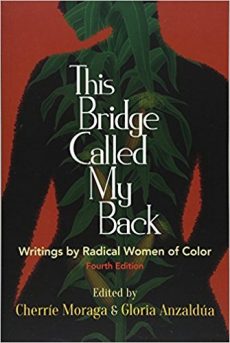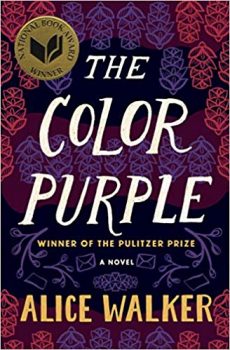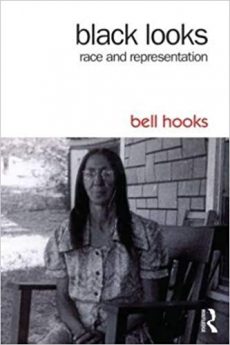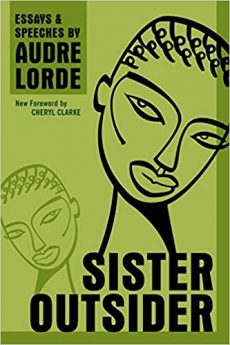This content is being reviewed in light of recent changes to federal guidance.
A Review and Reading Companion to Noname’s Room 25
[By: Anthony Boynton]
Noname’s sophomore album Room 25 is hypnotic and alluring. Indeed a coming of age story, this self-released project is a meditation of what the Los Angeles-based Chicago rapper calls her “darkest secrets”, and you should hear her out, like the track “Ace” (feat. Smino and Saba) says. Brilliantly mixing rap, jazz, and neo-soul, Noname crafts a solid album that is not only easy listening for a late night car ride, but also full of thought-provoking questions about her reputation and fame, about spirituality, and about death and life.
What is valuable about her work is the way her experiences and truth are consistent with that of books written by women of color across space and time, especially black women. Noname’s stories, through music, exist in a litany of black feminist narratives and perspectives. Below is a short reading companion that reflects the messages in the album:
This Bridge Called My Back edited by Cherríe Moraga and Gloria Anzaldúa

Noname has given us what I will name the line of the year in the strong start for the album “Self”: “My pussy wrote a thesis on colonialism.”
This Bridge Called My Back is a collection of essays by self-identified women of the Third world and women of color writing about how their experiences are foundational to what was at that time an emerging radical feminist politic and the effects of racism, colonialism, and other forces of domination on their work and lives. As foreword writer and novelist Toni Cade Bambara writes, the collection is a bridge for particular rites of passage and coming of age for women across a myriad of marginalized identities. Noname’s openness about sexuality throughout the album (most notably in “Self”), and feminist writers’ articulation of progressive sexual politics as a ground for feminism, is integral to the process of self-discovery and finding wholeness.
The Color Purple by Alice Walker

In the same way Noname uses her music to guide her self-discovery, Celie, in the award-winning epistolary novel written by Alice Walker, writes letters to God, her sister, to nature, and other loved ones in a path to find herself. Writing through trauma and separation from her family and children, as well as about finding community and independence, The Color Purple is a beautiful coming of age story of a young, timid girl who grows into a woman who learns about and knows what true love really can be. Noname’s debut album Telefone introduces a burgeoning star, Room 25 presents a matured artist.
Black Looks: Race and Representation by bell hooks

There are several tracks on this album that will soon become anthems to blackness. “Blaxpoitation” is energetic and as funky as the 70s movie genre from which she samples. A quote from The Spook Who Sat by the Door, a film adaptation of Sam Greenlee’s 1969 novel of the same name, is most outstanding, “I am black. . . . I was born black, I live black, and I’m gonna die partly because I’m black . . .”.
Throughout the song, Noname negotiates stereotypes and representations of blackness against a politic of black pride. Black Looks by feminist cultural critic bell hooks is a collection of essays on race and gender politics found in music, popular culture, films, and entertainment history.
Sing, Unburied, Sing by Jesmyn Ward

Noname’s “Don’t Forget About Me” is ruminant, sobering. As the title suggests, it is a chant sung in hopes that the artist’s family members and loved ones won’t forget about her. The connection between love and memory Noname sings and raps about reminds me of how ghosts appear without warning in Jesmyn Ward’s 2017 summer novel. Sing, Unburied, Sing centers a family dealing with the trauma of death in Bois Sauvage, Mississippi, not just their own, but also their loved ones. The ghosts of their past and present materialize to make them ask what truly matters.
Beloved by Toni Morrison

“Montego Bae” (feat. Ravyn Lenae) has an unconventional sound if up against most of mainstream rap though it is not a lightweight contender. With an airy rasp, Ravyn Lanae sings over what is a collision of jazz and neosoul reminiscent of Erykah Badu, Nina Simone, and Theolonius Monk. Noname spits with the consistency and timbre that won our hearts in Telefone in the second verse, alluding to Toni Morrison’s Beloved, “Reading Toni Morrison in a n*gga canoe /’Cause a bitch really ’bout her freedom”. Just one of Morrison’s masterpieces, this award-winning 1987 novel features the story of Sethe and her daughter Denver after their escape from slavery. “Beloved” is the name of the two-year old daughter Sethe kills in order keep her children safe from slavery who, years after the Civil War, comes back to haunt the family. Denver was born in a canoe during Sethe’s escape. Noname’s literary allusion is a way for her to name what freedom means to a maturing young woman and artist.
Invisible No More: Police Violence Against Black Women and Women of Color by Andrea J. Ritchie

“No Name” (feat. Adam Ness and Yaw) has a dreamy sound, echoes of synths, guitar, piano and No Name’s voice float across the intro. But don’t let this euphoria fool you, Noname’s verse is about the harsh realities of being invisible in the matrix domination. She talks about namelessness (“so many names don’t exist”), calling up the Black Lives Matter Movement and the #SayHerName digital campaign inspired by the murder of Sandra Bland. The black politics of our contemporary moment has sought to name the nameless, to provide visibility for those who’ve been ousted by the state. The naming that happens and the visibility provided still often forgets women and non-male persons–this is the purpose of #SayHerName.
Andrea J. Ritchie, a black lesbian writer, pens Invisible No More to articulate the gap in movement efforts to center black women and girls. By centering black women, girl and other people of color across spectrums of gender and sexuality, we can have a much more honest conversation about what freedom beyond the bounds of the police state and state-sanctioned violence can be. Is Noname envisioning a world where freedom is real?
Sister Outsider by Audre Lorde

In the last lines of “No Name”, the rapper encourages her listeners to not let life pass them by, implying that life exists beyond trauma. This does not mean at all that she is unaware of the effects trauma has on the body and her life (“moved into Inglewood and trauma came with the rent”). The way this track, and the album overall, prioritizes joy over trauma, through reflection and language, is exactly what Audre Lorde did in Sister Outsider, a compilation of her speeches and essays from throughout her career. In “The Transformation of Silence into Language and Action”, Lorde offers a reflection about her experiences with cancer, and how the recognition of her mortality, yes, scared her, but also empowered her to share her story and live freely “even at the risk of having it bruised or misunderstood”. Lorde’s and Noname’s work are gifts that offer a praxis for intentional joy-centered ways of being.
~~~~~
Room 25 welcomes listeners with to an experience and journey into Noname’s most vulnerable music to date. With an understated energy and delicacy, and with honesty and power, this album will speak to the innermost parts of a wandering mind or soul and help them find home. As we witness her becoming, her blossoming into the artist she is meant to be, I hope she gets her roses.

Anthony Boynton is a Southern scholar-blerd based in Lawrence, KS and a doctoral student in English. He is a cultural critic and creative writer who writes (and writes about) the future, popular culture, gender, and blackness.